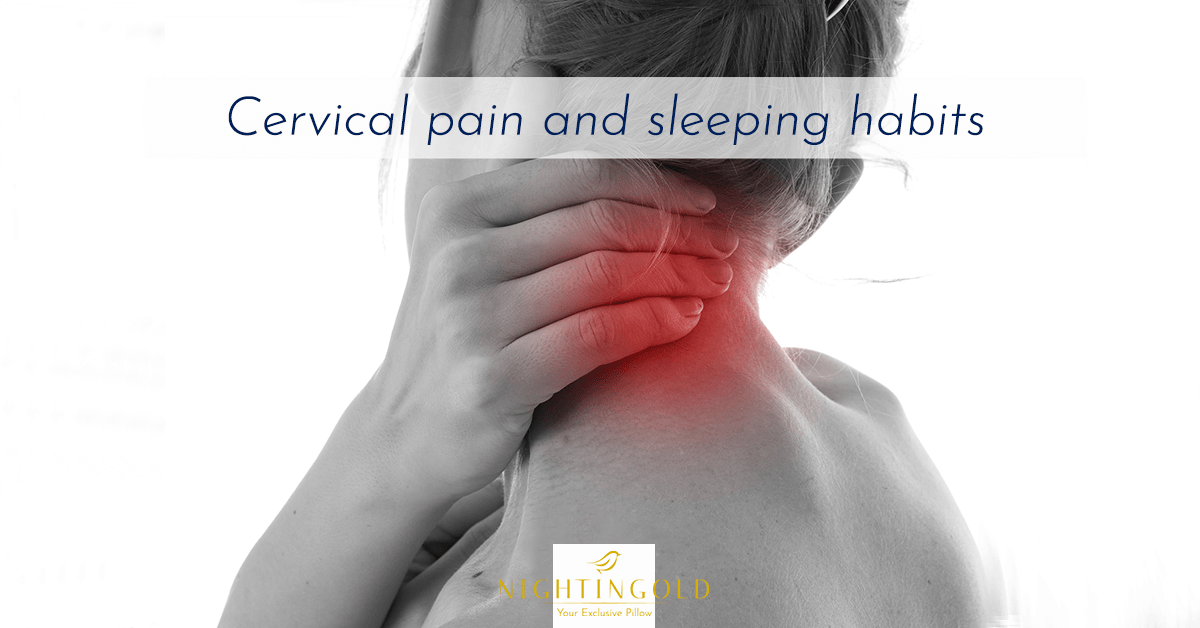Neck pain and stomach sleepers: what’s the correlation?
Neck pain affects 45% of today’s working population, so it is something we all deal with at one point or another. It ranks in the top 5 disorders in the United States, with 10-20% of people reporting incidents of neck pain.
As with so many things, when it comes to neck pain, prevention is fundamental.
If it’s true that some causes of neck pain are not under your control, such as age-related wear and tear. But on the other hand, there are many things you can do to minimize your risk.
One place to start is to look at how you sleep and what effect this may have on neck pain.

Do you regularly sleep on your stomach?
Sleeping on your stomach is the most harmful habit to the health and function of our spine and our nervous system.
Unless you manage to find a way to breathe through the pillow, you have to turn your head to one side when you’re sleeping on your stomach. This causes your neck to be twisted, putting your spine and head out of alignment, leading to some severe damage. You probably won’t notice this damage after only one night, but the problems will unquestionably become evident over time.
You have to imagine that middle part of your body is exactly where most of the weight is. So when the head is turned to the side and then the weight of the body is placed upon it, all is goanna a be really compressed: the muscles, ligaments, tendons, joints, discs, nerves, etc.
In fact in our neck there are many complex and important structures, including the top seven bones in the spine (vertebrae), the disks between the vertebrae, blood vessels, spinal nerves, muscles and ligaments. Problems with any one of these can result in neck pain.
The application of this stress of stomach sleepers will lead to an acceleration of degeneration of the discs and joints. Some of the worst degenerative disc disease of the spine have been shown in those people who spent their life sleeping on their belly.
Not only the neck
Sleeping on your stomach is tough on your spine: the back is arched and your neck is turned to the side.
Stress on the neck means stress on the spine, that is the structure of your entire body. Additionally, since the spine is a pipeline for your nerves, spinal stress can cause pain just about anywhere in your body. Have you ever experienced tingling and numbness, as if parts of you have “fallen asleep”? Now you can understand better the reasons that stand behind.
Herniated disk and sleeping comfortably
One of the biggest neck problems that you certainly don’t want to experience is the so-called herniated disk. This issue appears when the spinal vertebrae shift enough to cause a rupture of the gelatinous disk inside, causing the gel to leak out and irritate the nerves.
Spinal discs act as cushions between vertebrae, helping the spine bend and move more fluidly. Over time, discs may become dehydrated, less flexible, or injured, causing them to herniate or bulge.
If you suffer from herniated disk sleeping on your belly is really dangerous for you! Remember that this position alters the natural curve of the spine, stressing even more a hinky part of your body.
Correlated damages
Research suggests that not just sleep position, but the quality of your sleep can play a role in musculoskeletal pain, including neck.
Researchers compared musculoskeletal pain in around 4.000 healthy men and women with and without sleeping disturbances. Sleeping disturbances include difficulty falling asleep, waking early in the mornings or more generally a non-restorative sleep.
The research demonstrates that, after only 1 year, people who reported from moderate to severe problems of sleep were significantly more likely to develop chronic musculoskeletal pain than those with a good quality of sleep.
In fact, sleep disturbances disrupt the muscle relaxation and healing that normally occur during sleep. Additionally, it is well established that pain can disrupt sleep, contributing to a vicious cycle of pain disrupting sleep, and sleep problems contributing to pain.
A dead horse or something more?
Two sleeping positions are easiest on the neck: on your side or on your back. For more information about it take a loot to our article: Sleeping position: the impact on your health
Preferred sleeping positions are often set early in life and can be tough to change, not to mention that we don’t often wake up in the same position in which we fell asleep. Still, it’s worth trying to start the night sleeping on your back or side in a well-supported, healthy position when not used to.
But it’s not only a matter of bad habits token up as children
A lot of time sleeping on your stomach hidden the inability to find that ‘aah’ sensation that allow you to immediately drop off to sleep. How often have you turned over in your bed, moving your pillow from one side to another, hugging him tight and immediately after throwing it, desperate not to find the position?
These are the typical cases where you end up falling asleep on your stomach, generally with your arms under the pillow and assuming a strange position with your back, bending al least one leg up to touch your elbow with the knee.
The stomach position is the solution your body has unconsciously found to an uncomfortable bed environment.
In fact, if you think about it, you can understand why. In the stomach position your body has got much more freedom of movements and can operate somehow to give you a better sensation of comfort even if with a palliative solution. But … at what cost?
Proper pillows can minimize neck pain
People have learned the importance of the mattress to sleep well, but for most people the pillow doesn’t have a proper identity yet.
Don’t make this mistake!
The pillow play a central role in the quality of your sleep. It’s the main responsible of the alignment of the spine, impacting your health on two different sides.
Firstly, it has a direct impact on the physical/mechanical state of your spine, avoiding tensions on the muscles or tendons and a more general inflammation of nerves.
Secondly it directly impacts on the comfort you experience when lying down on your bed. The sensation of well-being comes when your spine is well positioned, and it’s when your body begins to relax!
With a proper pillow you don’t have to struggle finding the proper position and …. why not, you can say goodbye a your bad habits.
What does it mean proper pillow?
A proper pillow is able to align your spine, and it depends on different factors:
– your sleeping position: you can imagine that if you sleep on one side you need a higher support for your head for its correct alignment with the spine that if you sleep on your back
– your dimensions: a basketball player has different needs from a girl of about 1,60. If we compare them when sleeping on their side, for example, it’s clear to understand why the athlete need a higher support under his head to ensure the correct alignment of the whole spine. The dimension of his shoulders, the thickness of his back and his muscles make him a lot different from the girl.
Different positions + different physicality = Tailor made pillow
Tailor made pillow
If you think how unique is each of us, with his sizes, habits and desires, you can starting to understand how it’s unlikely that a standard pillow can exactly fit your necessities.
If it’s universally recognized that the same model of shoes is not adapting to all feet, we still believe that it can exist a pillow suitable for everybody.
Anyone who has had the experience of a handmade product needs no further convincing.
Nightingold tailormade service creates a pillow only for you
The process created to design a pillow for each customer starts from a deep investigation of body measures, sleeping positions, needs, and habits. A co-design activity between the R&D team and the customer to ensure a good night’s sleep and the consequent sensation of well-being during the day
The quality of your rest depends on the quality of your pillow. Think about it.
Don’t jeopardize your health.
For any information don’t hesitate to contact us, click our Nightingale
We are happy to put at your disposal our knowledge.

Leave a Reply
Want to join the discussion?Feel free to contribute!